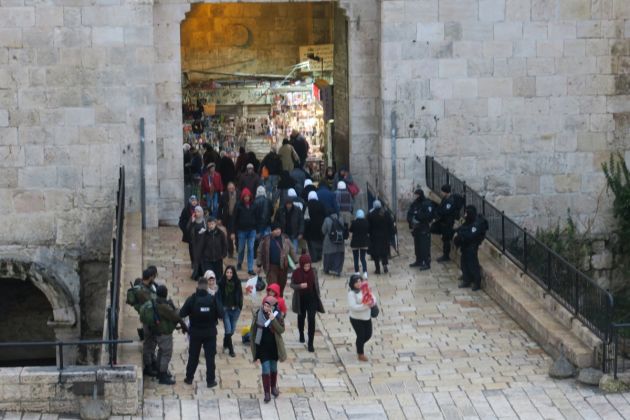World Council of Churches wants international conference on Israel-Palestine conflict

The World Council of Churches has called for the convening of an international ecumenical conference in 2017 "to reaffirm and strengthen ecumenical witness for peace with justice for Israelis and Palestinians."
The decision was made by the main governing body of the council, its central committee, meeting in Trondheim, Norway, from June 22 through 28.
The statement comes at a time when Israeli authorities and pro-Israeli groups have engaged in some strong criticism against WCC peace and justice campaigns in the Holy Land.
It also comes when tensions are rising in the region with increasing encroachment of illegal Israeli settlements into Palestinian areas and floundered peace talks along with flaring violence.
"We are called during this year to reflect together on the situation of the churches and societies of this region, the threatened presence and witness of Christians throughout the Middle East," said the WCC committee.
It noted the "long and unfulfilled search for peace with justice for Israelis and Palestinians, noting that next year – 2017 – will mark a painful anniversary: 50 years since Israel began its occupation of East Jerusalem, the West Bank, the Gaza Strip and the Golan Heights."
The church grouping said it has had a deep involvement in efforts for Israeli-Palestinian peace since 1948 when the State of Israel was created and the WCC formally established.
It said that even before 1948, the emerging WCC sought to help European Jews immigrate to safe havens, away from Nazi-occupied territories in Europe and assisted Palestinian refugees forced to leave their ancestral lands.
"The WCC has consistently denounced the use of violence and acts of terror, whether by the State of Israel or by Palestinian groups and individuals.
'JUST AND SUSTAINABLE PEACE'
"A just and sustainable peace cannot be secured by violence, which only begets more violence. In word and action, the WCC has consistently promoted dialogue and negotiation as providing the only viable path for a shared pilgrimage of justice and peace, in Israel-Palestine and throughout the world."
The "Statement on the Israeli-Palestinian Conflict and Peace Process" called on its churches and ecumenical partners to "listen and respond to the voices of Palestinian Christians."
The central committee said the WCC should take active steps to encourage a continued robust indigenous Christian presence in the Holy Land.
Further it should promote and support "all nonviolent efforts to end the occupation" of Palestinian territories.
It must also intensify "dialogue and cooperation with Jewish and Muslim partners on the pilgrimage of justice and peace."
The world church body called on its churches to support leaders and members of the churches in the area, "strengthening their presence in the cradle of Christianity."
It also highlighted the recent increasing attempts to pressure the WCC on some of its work in the Holy which includes a program to monitor checkpoints between Israel and Palestine by Christian, Jewish or Muslim volunteers on short-term assignments
"The WCC itself has encountered aggressive attitudes and actions by the authorities of the State of Israel, with several WCC staff and representatives of member churches and partners seeking to enter Israel having recently been subjected to exceptionally aggressive, intimidating and abusive interrogation and treatment, including detention for up to three days and deportation," the statement said.